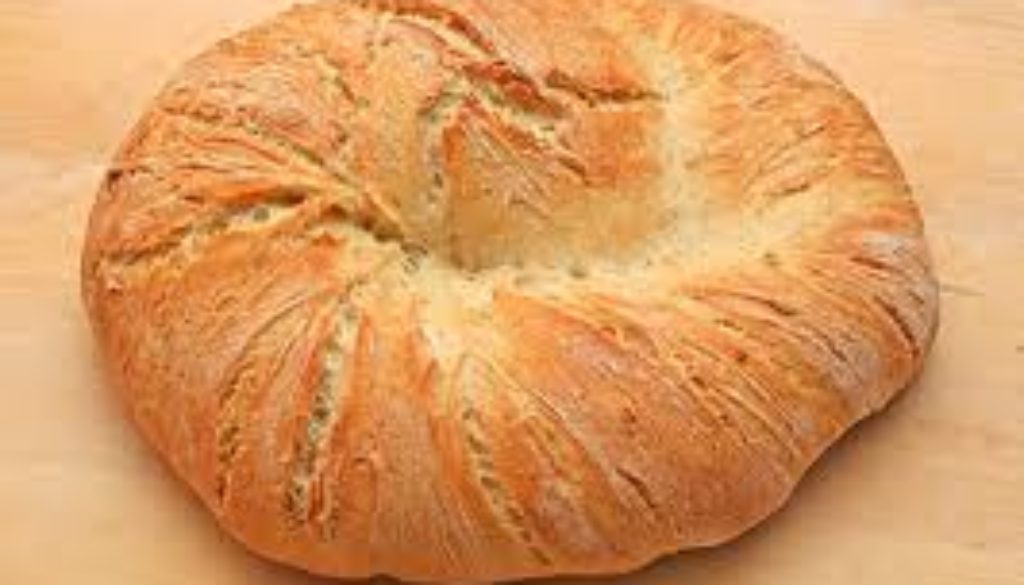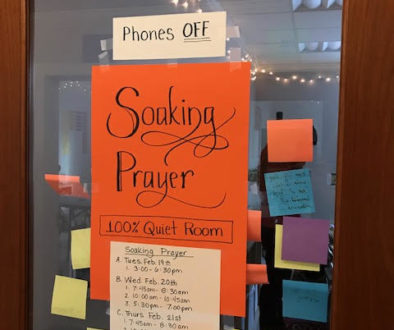Give Us this Bread Always: a midweek Eucharist reflection
Every Wednesday lunchtime this year we have been gathering in the sanctuary to celebrate the Eucharist. There are just two more – today and next Wednesday (04/12/2017), so if you haven’t been to one yet do think about coming! 12.15pm – 12.50pm in the Sanctuary. Meanwhile, here is Amy’s homily from last week ….
Today’s gospel reading is a conversation between Jesus and a crowd beside a lake. But to really enter into all that is happening here, we actually need to first back up a little bit to get some context.
If we rewind to the day before, we learn that Jesus started out right where he is now – on the other side of the Sea in Capernaum. We learn from Matthew’s gospel that while in Capernaum yesterday, he received the horrible news that Herod had beheaded John the Baptist. Imagine how Jesus must have felt – lonely in his work of proclaiming the kingdom. Vulnerable to the whims of a violent ruler. And just really, really sad. And so Jesus decides he’s got to get out of here and find some solitude with God. He decides to cross the Sea of Galilee with his disciples, to go up a mountain that Matthew calls a “desolate place” – a landscape that matches his own emotional state.
So he does. He crosses the sea, he climbs the mountain, and he sits down rest in his Father’s presence. But as soon as he does, he looks down. And there below him are swarms of people, following him up, because they have heard that this man has the power to heal.
And of course Jesus knows that the people rapidly approaching them are hungry and that his disciples have no money to feed them and are getting nervous. And so he takes the bread and fish offered by a little boy and blesses it and breaks it and distributes it to every last person – thousands of them – and they sit in this desolate place and feast together. And the people are so amazed and satisfied that they want to make him king right then and there – but remember what Herod’s been up to? Clearly, that’s a bad idea. And so Jesus retreats even further up the mountain for a few moments of solitude.
That night, his disciples set out their boats to head back across the Sea of Galilee. (And oh, by the way, Jesus also walks out to them on the water in the midst of a storm. But that’s a story for another day.)
The next morning, Jesus and his disciples wake up on one side of the lake, back in Capernaum, while that crowd of thousands wakes up on the other. And they quickly realize that Jesus isn’t there, and neither is his boat. And they put two and two together and jump in their boats and row across the lake to find him. And that’s where our story picks up.
This context is important, because we need to know what kind of people are asking Jesus questions in today’s passage. These are people who have climbed a mountain and crossed the sea just to be with Jesus. And these are people who have already feasted on his miraculous provision of bread. Everything about these people’s actions suggests that they are hungry in their souls. But for what?
Well, leave it to Jesus to find out, and not in a terribly gentle way. He chastises them for following him. He’s suspicious. He says, “I know what you’re after. You just want some more of that free bread. Well free bread’s never going to satisfy you. You’re wasting your effort working for something that’s just going to leave you empty.” But they don’t just shrug their shoulders and disperse. They persist. They press in. They show that maybe they’re not just looking for a free lunch after all. They say, “Okay, Jesus; if we’re working for the wrong thing, then tell us what to work for instead. What is the work of God and how can we do it?”
And then Jesus tells them that the work of God isn’t really work at all: it’s believing. It’s trusting him with our hunger. What is the work of God? It’s showing up hungry, and believing he alone can feed us.
But the crowd doesn’t really get it yet. They press in again. They ask: “Okay. But if that’s our ‘work’, then who’s going to, you know, actually do the work? What’s your work, Jesus? How are you going to prove to us that you’re really working for us? That we can trust you with our hunger? Are you going to give us manna, like Moses did?”
And Jesus patiently corrects them. He reminds them that it was never Moses who gave their ancestors manna, it was God himself. He reminds them that for 40 years God fed their ancestors every day, while they didn’t plant or water or harvest, while their only work was to show up hungry every morning and receive from the hand of God. And Jesus goes on to tell them that this bread of heaven, this manna, is in their midst again. It’s him!
And then the crowd says one of my favorite sentences in the bible: “Give us this bread always.” We actually prayed this recently in the collect on the 4th Sunday in Lent: “Evermore give us this bread.” It’s a request that feels so demanding, so desperate, so hungry; it feels like something a child would say.
Remember that these are people who have already eaten miracle bread from his hands. And these are people who have climbed a mountain and crossed a sea because they are hungry and hope Jesus can feed them. So when Jesus tells them he is the bread of life, they know what it’s like to be hungry, and to they know how good it feels to be fed. They can say to one another, “Remember those barley loaves that we ate together yesterday? When we were hungry and penniless and so desperate for healing that we climbed a mountain to be with a stranger? Remember that mysterious bread that was more than enough, that tasted so good when we needed it most?”
Jesus is like that bread. Except that Jesus will satisfy them not just for an afternoon, but forever.
And just like this crowd, we are also people who have already feasted on this miraculous bread. The bread of life has already come down from heaven, blessed by God in the person of Jesus. It has already been broken on the cross and given to us to feed our deepest hunger and give us life forever. We have already feasted on God’s provision for us in the desolate place of our own sin and brokenness.
And so what is the work of God for us today? It’s showing up hungry. It’s trusting this bread with our deepest hunger. It’s saying no to all the empty filler calories that tempt us – stuff like financial security and control and affirmation – that temporarily takes the edge off our appetite but ultimately leaves us empty. Instead, we can show up hungry and receive this bread of life: blessed, broken, and given for us, again and again, forever.
“Give us this bread always.”
Father, thank you that you are our bread of life. You are barley loaves in a desolate place, and you are manna in the wilderness. Show us where we have been numbing our hunger with food that does not satisfy. Help us to show up hungry and to feast on your life-giving provision. Lord, in your mercy, hear our prayer.
Father, we pray for our world, that your wisdom would guide all our leaders, and that your Spirit would move powerfully to bring peace and healing in places of poverty, conflict, disaster, and pain. We pray particularly for refugees fleeing Syria, Iraq, Afghanistan, Yemen, Sudan, and other places of great suffering – people who are quite literally hungry in desolate places and wandering in the desert. Strengthen and uphold and protect them on their journey. Generously provide for their hunger and thirst. Settle them in places of safety and abundance. And stir our hearts to see and care and pray and act on their behalf. Lord in your mercy, hear our prayer.
~Amy Rowe


